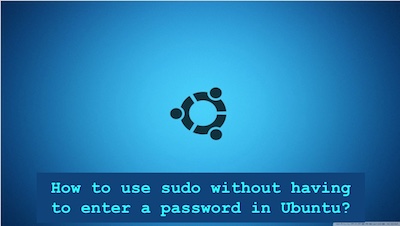

#Ubuntu sudo su software#
This can prevent malware from doing things like automatically installing software on a computer.

By requiring input from a user to escalate privileges, the OS can prevent malware from making changes on that system. Locking certain tasks behind user privileges is also a security measure, too. The responsibility of security and maintenance is then passed from the OS itself to the system administrator. It is assumed by these OSs that if a person can escalate privileges in an OS then they must be an administrator and they know what they are doing. Meanwhile, system administrators are still capable of performing the complex system administration tasks required to keep computer systems up and running. This lets normal users access and use a computer to get a job done without being able to break that computer. Modern operating systems give systems administrators a way to secure the OS through a means of user accounts and privilege levels. So, operating systems like Linux and Windows require escalated privileges before those components can be changed. Editing those components can cause issues like preventing a computer from starting properly, disabling services, damaging hardware, or causing security issues. There are a lot of parts to a computer system that can be dangerous to work with. Let's discuss how you escalate privileges in Linux and why you would want to. In Linux, escalating privileges is a very deliberate act. So much so that a lot of entry-level IT professionals don't even realize that just because they have an admin account doesn't mean that they still don't need to escalate user permissions to perform administrative tasks in Windows. Windows can be a lot more forgiving when you need to perform an administrative task. The Windows UAC prompt makes escalating privileges easy. There comes a time in every administrator's life where you need to escalate privileges in Linux.


 0 kommentar(er)
0 kommentar(er)
